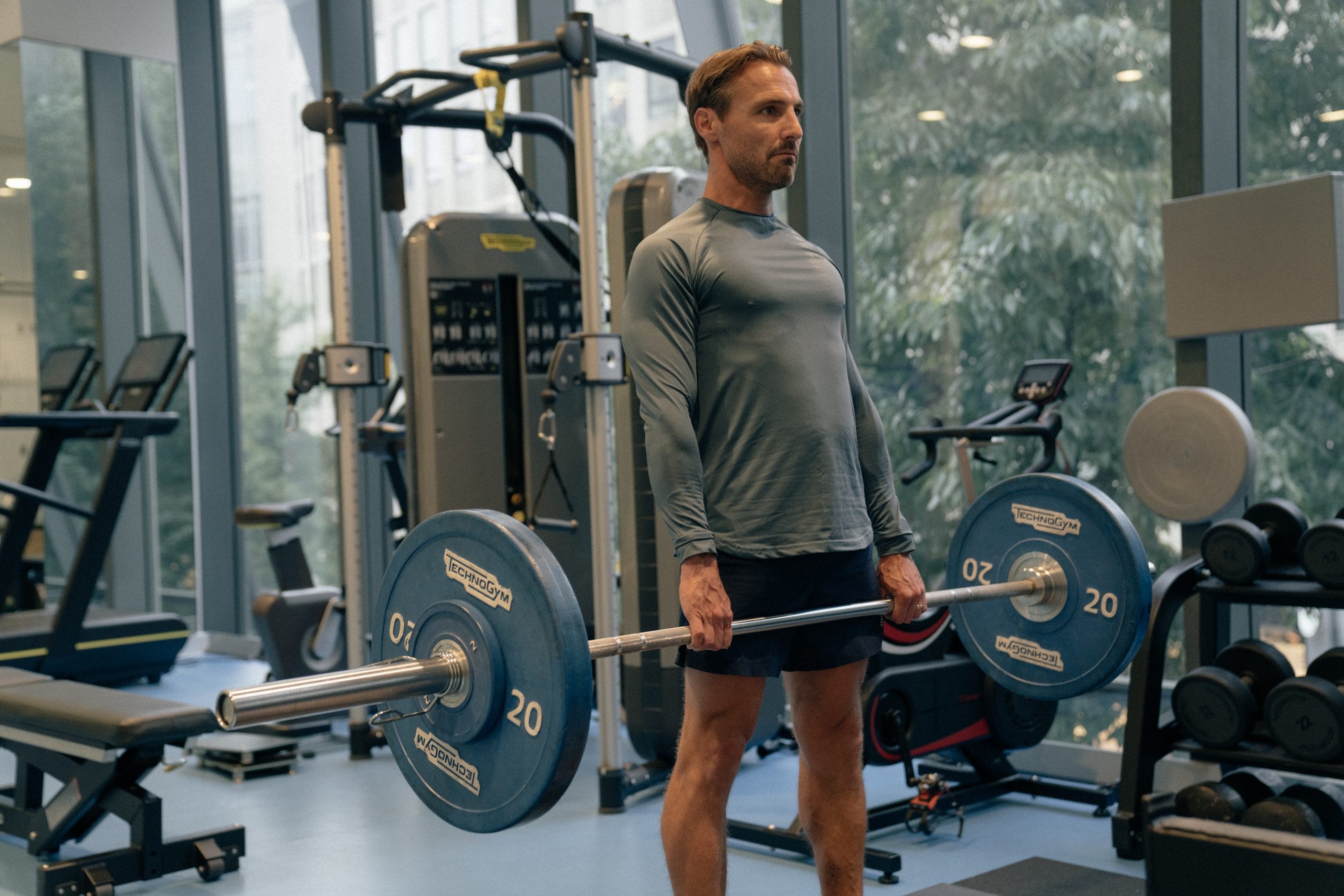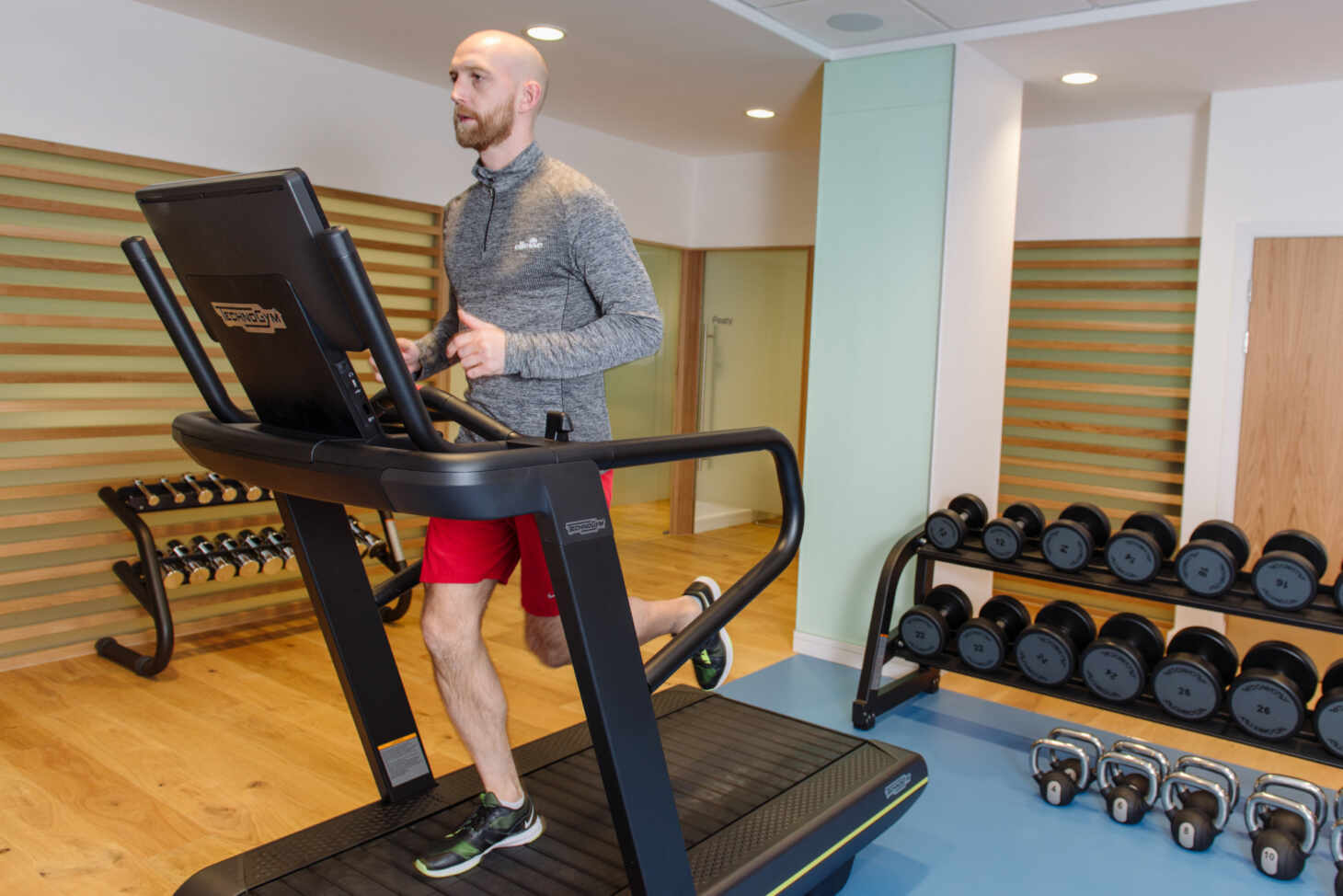5 Key Tips for Successfully Completing an Ironman

Alex Townsend
Podiatrist
- 8 June, 2023
- Exercise
- 4 min read
As a passionate sports enthusiast with a particular interest in endurance athletics, I knew it was only a matter of time before I caught the Ironman bug.

It all started during a bike ride with a friend who was training for Ironman Wales in 2016. As a novice cyclist, I wrongly fancied myself as a hill climber and thought I could give my friend a run for his money. When he revealed the madness that is Ironman, my initial response was: “If he can do it, so can I.” All I had to do was learn how to swim…
Fast forward to June 2020 and I had signed up for my first ultra-distance event – the Ironman 70.3 Staffordshire race. But, just as I was gearing up for the big day, COVID-19 hit and the event was postponed to 2021.
And then, only seven days prior to the rescheduled event, I learnt my first crucial lesson which would be followed by four more.
Injuries happen
It’s easy to assume that injuries only happen to other people, but the reality is that we’re all susceptible to them. Sadly, I was involved in a quad bike accident which resulted in a fractured wrist, subsequent surgery, and a long road to recovery.
Unfortunately, this setback had a big effect on both my physical and mental health, as injuries often do. The feeling of loss over missing a crucial event was tough and took a lot of self-reflection to overcome.
However, this injury and the subsequent recovery taught me my next lesson.
You are stronger than you think
Endurance sports like Ironman require mental and physical strength beyond what most people think they’re capable of, and success depends on both.
Many athletes approach their training with self-doubt; unsure of whether they have the capacity to break through those barriers. But pushing past your perceived limits can lead to surprising results.
The reality is that most people are capable of far more than they think. Endurance sports demand a lot from athletes, both physically and mentally, but with consistent training and dedication, they can push beyond their perceived limits and achieve things they never thought possible.
It’s often in these moments of pushing past the point of perceived exhaustion and the sense of being overwhelmed, that the greatest breakthroughs occur.
Don’t skip on sleep
Sleep is essential for peak performance, both mentally and physically.
Getting enough sleep is key to maintaining the energy and focus necessary for long training sessions and races. It is essential for recovery and growth, and a lack of sleep can hinder an athlete’s ability to perform at their best. This is especially important for endurance athletes, like Ironman competitors, who must maintain high levels of physical and mental endurance over a long period of time.
As highly motivated and often ‘time-crunched’ athletes, we all think we can skip a few hours of kip here and there, but if we adopt this thought too frequently it can have dire effects.
During sleep, the body and mind repair and regenerate, leading to improved overall health and performance. A good night’s sleep helps to reduce inflammation and stress, boost the immune system, and improve cognitive function. It also allows for the consolidation of new memories and the restoration of energy. Again, essential for endurance athletes who need to perform over long distances and extended periods.
Without sufficient sleep, an athlete may experience decreased reaction time, slower decision-making ability, and decreased endurance. Additionally, lack of sleep can negatively affect an athlete’s mood, leading to increased stress and anxiety and, subsequently, a loss of motivation to continue training.
Plus, long training sessions can be draining, and recovery is essential to preventing injury and ensuring that you’re ready for the next session. Prioritising sleep will help to make sure that you are prepared for your next session or competition, whilst helping you avoid injury.
Time management is key
Effective time management is crucial for anyone trying to juggle multiple commitments and achieve their goals, and this is especially true for Ironman competitors.
Training for an Ironman requires a significant time commitment, and it can be challenging to balance this with work, family, and other personal obligations.
There will be early mornings, late nights and lost weekends. From a personal perspective, I am very lucky in that my partner supported me throughout and it was an amazing experience to go through together – even if I did drive her slightly crazy in the process!
It’s all about prioritising and organising your time to make the most of every hour in the day. It involves setting goals and deadlines, planning your schedule, and being disciplined about sticking to your plan.
When planning your schedule, you want to begin by breaking down your day, week, or month into manageable chunks and allocating time for each task. Effectively managing your time in this way can help to reduce the stress of finding time to train and increase productivity by having the time allocated in advance.
All of this can make a huge difference, and yes it can be challenging, but by learning to manage your time effectively you can find the time to train effectively, while also meeting your other obligations.
Use your support network
Due to the demanding nature of endurance sport, having a support network can be the difference between success and failure. So surround yourself with people who motivate, encourage and provide practical support to you as this can make a significant difference to your performance.
Your network can be made up of a variety of people including family members, friends, training partners, coaches, mentors, and significant others. These are the people who will be there to support you through the highs and lows of your Ironman journey. They can provide a listening ear when you need to vent your frustrations or share your successes, and they can offer practical help when you need it, such as childcare, transportation, or nutritional advice.
One of the key benefits of having a support network is the motivation and encouragement they can provide. Endurance sports like Ironman require a significant amount of training, and it can be easy to lose motivation or become discouraged, especially during the tough times. Having people around you who believe in you and support your goals can make a major difference in keeping you on track and getting you through the difficult moments which you are sure to encounter.
Another important aspect is accountability. When you have people around you who are invested in your success, you’re more likely to stick to your training schedule and make the necessary sacrifices to achieve your goals. They can provide a level of accountability that will help ensure you’re making progress towards your goals.
In conclusion, my Ironman journey taught me that the path to success is often paved with challenges, setbacks, and unexpected learning curves. But with determination, discipline, and a supportive network, you can achieve more than you ever thought possible.

Advice
Over the last 20+ years our experts have helped more than 100,000 patients, but we don’t stop there. We also like to share our knowledge and insight to help people lead healthier lives, and here you will find our extensive library of advice on a variety of topics to help you do the same.
OUR ADVICE HUBS See all Advice Hubs

